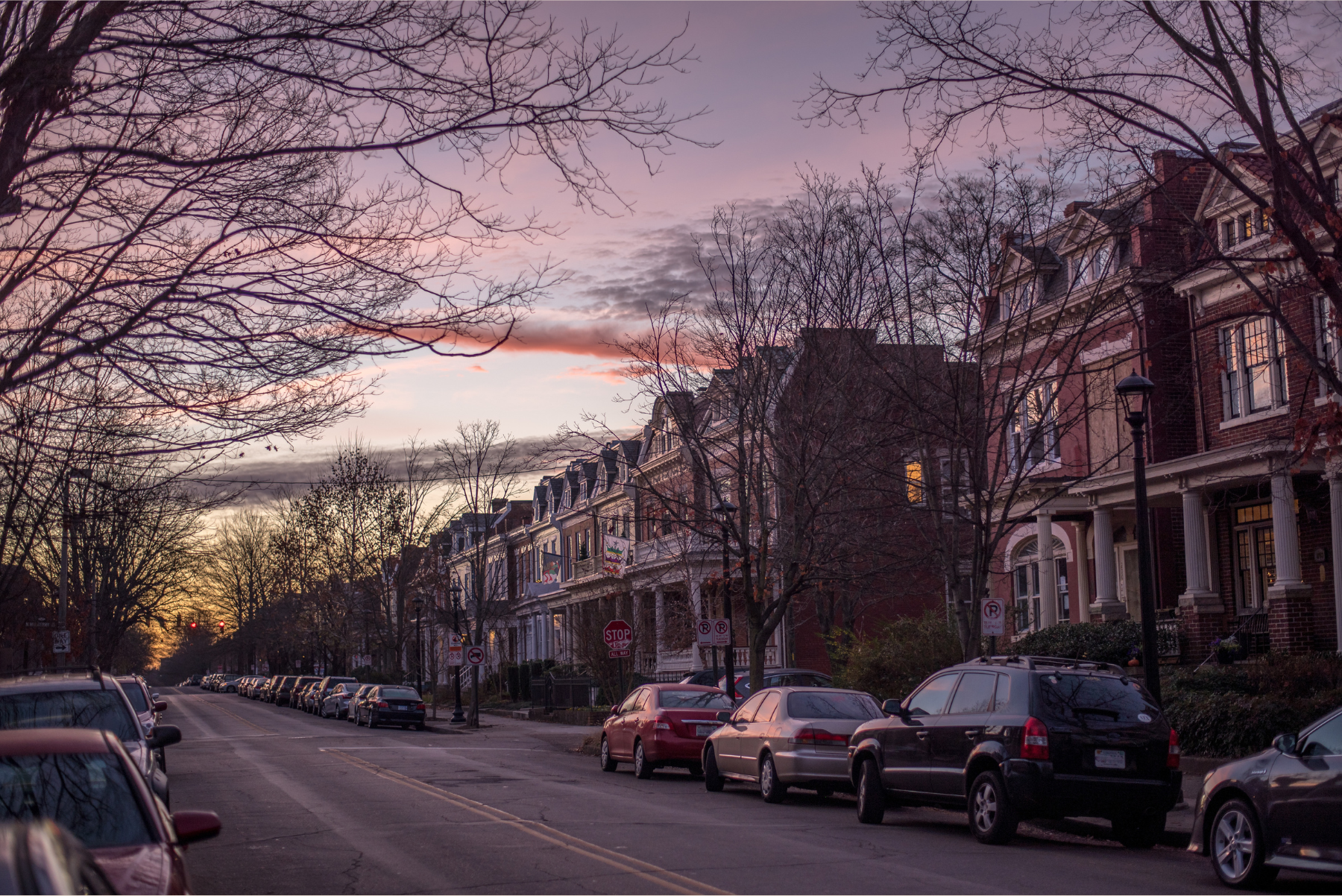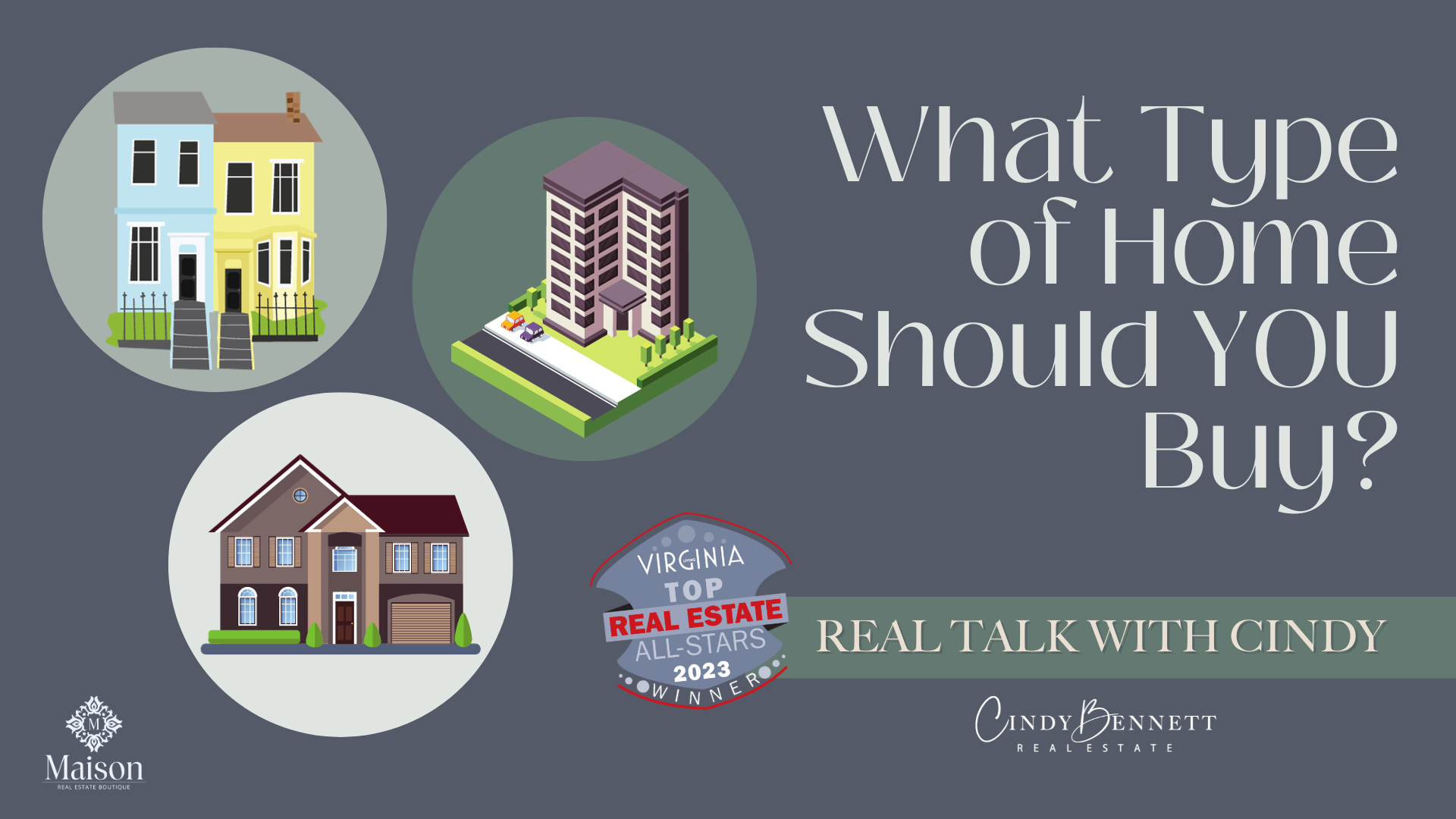Richmond Real Estate
Keep on top with latest and exclusive updates from our blog on the Los Angeles real estate world. Cindy Bennett Real Estate posts about tips and trends for buyers, sellers, and investors every week. Whether it be about staging your property or a snapshot of the market, this is your one stop shop.

The metro Richmond area real estate market in 2023 demonstrated both resilience and competitiveness, making it one of the most active markets in the state. As we step into 2024, most trends and predictions suggest a dynamic year ahead. Market Overview and Trends in 2023: Throughout 2023, our market was a ALL about the sellers. With high demand and competitive bidding holding steady all year, it was a tough one for buyers, particularly as interest rates ticked up to nearly 8%. A significant portion of sales, (about 55.4%) closed at prices above the listing price, indicating a highly competitive environment. The average sale price of homes in Richmond maintained an upward trend as well, fueled by the influx of young professionals and steady population growth in the area. One of the more difficult hurdles buyers faced was the inventory shortage- while already tight, it was made worse by sellers not moving because going from a 3% (or sub 3%, in many cases) rate to one that's 7 or 8 was just too unappealing. Housing Affordability and Demand: The concern for affordability continued to grow in 2023 due to rising interest rates and low housing inventory. This situation made homeownership more challenging for many potential buyers. Despite these challenges, Richmond's real estate market continued to thrive, with the rental market showing particularly strong growth. Rent prices increased by 22% over the past two years, in fact. The Richmond area is one where generally, it is still less expensive to buy than rent, though, which makes it good for both buyers of primary residences and those buying investment property. 2024 Predictions: Looking forward to 2024, the Richmond Metropolitan Statistical Area (MSA) forecasts a stable outlook, While some predictions show a slight dip in housing market performance by the end of the year, headed into a major election that seems nearly impossible to predict. The Virginia housing market as a whole is expected to see an 11.4% increase in home sales compared to the past year, suggesting a rebound from 2023's relative decline. Home prices are also projected to rise modestly, by about 1.2%. Real Estate Investment in Richmond: Richmond continues to be an attractive option for real estate investors, particularly those interested in the rental market, due to the large student population. The city's status as the state capital and a hub for commerce and education enhances its appeal for investment. The market is expected to yield good returns in the long term, with home prices showing a year-over-year upward trend. The Richmond real estate market in 2024 is poised for a year of adaptation and change. While challenges like low inventory and affordability constraints still exist, the market is expected to remain competitive and moving throughout the year. As we head into a spring market with lower mortgage rates, more buyers will surely be out home shopping. It is a great time to think about selling if you've been on the fence (and easier, as a result, to find something to purchase after your sale). If you're thinking of purchasing in 2024, this is the time to start building a game plan and getting your pre approval. As rates dip lower, competition for the homes available will absolutely increase. Make sure you're ready when you find "the one." For investors and homebuyers alike, understanding these dynamics and staying informed will be crucial for navigating this evolving market. Richmond's steady population growth, thriving job market, and diverse real estate options make it a unique opportunity in the rental and overall housing market, through 2024. Curious about the value of your home, or what you can purchase? Reach out to me today and let's discuss!
Read more
As 2023 draws to a close, the Metro Richmond real estate market presents an intriguing landscape for homebuyers, sellers, and investors alike. This comprehensive analysis delves into the current state and future outlook of the Richmond market, offering what I hope are some valuable insights for those navigating this dynamic environment. Current State of the Richmond Real Estate Market Richmond, known for its affordable housing market, vibrant culture, and rich history, is part of a larger metropolitan area encompassing Chesterfield, Hanover, Henrico, and Richmond City, home to nearly one and a half million people. In 2023, the market exhibited several key trends: New Listings and Sales: There was an 8.3% decrease in new listings compared to 2022, with a 27.8% drop in closed sales, reflecting a challenging environment for finalizing transactions. Median and Average Sales Prices: The median sales price in Richmond saw a 6.9% increase, reaching $405,000, while the average sales price rose by 8.5% to $472,515. Market Performance Metrics: Properties were moving quickly, with median days to pending at just 6 days. About 66.6% of sales were transacted over the list price, suggesting a competitive market. Anecdotally, I can definitely speak to this, as nearly no transaction with which I've been involved has had only one offer. Predictions for 2024 Looking ahead to 2024, several predictions and trends are shaping the Richmond real estate market: Economic Growth and Mortgage Rates: A backdrop of modest economic growth and slightly higher unemployment is expected. Mortgage rates are anticipated to begin a slow retreat, improving housing affordability but potentially increasing demand as more buyers get into the market after having been waiting out the higher rates. Home Prices and Sales: A slight dip in the growth of home prices is expected, with a continued trend of stable but low home sales levels. Don't misconstrue this- it doesn't mean prices are dropping, just that prices may not continue at the same level of growth over the next year. (I definitely predict they'll still increase, though.) Housing Inventory: The number of existing homes for sale is expected to remain low due to insufficient building in past years. Mortgage rates are expected to exceed 6.5% for the year, maintaining the gap between market mortgage rates and rates on existing mortgages. (It's harder to sell when you know you're giving up 3% and going to 6%, so fewer homes are likely to hit the market.) Rental Market: The rental market is expected to see a mild decline in median asking rent, with a robust supply of new multi-family homes tempering rent growth. Opportunities for Buyers and Sellers: First-time homebuyers may find some relief as the market becomes slightly more buyer-friendly in some respects. Home sellers, on the other hand, might face increased competition from new construction homes. Richmond Specific Forecast: For the Richmond area, a 3.3% growth in home prices is predicted for 2024, despite a projected 11.6% decrease in sales. The Richmond real estate market as 2023 closes shows resilience and potential for growth, offering a dynamic landscape for both buyers and sellers. While sellers remain in a strong position due to high demand and quick sales, buyers should still be prepared for competitive conditions, especially for well-prepared homes. However, with the expected easing of mortgage rates and a slight adjustment in home prices in 2024, the market may offer more balanced opportunities for both buyers and sellers. So if you're thinking of buying, let's meet and create a strategy to get you where you want to go. If you're thinking of selling, the market is still yours- I'd love to help you figure out how to maximize the value of your home, and get it sold to give you the most in your bottom line.
Read more
So you're thinking about buying a house, or a condo, or a townhouse, or something? How do you decide on what the right type of home to purchase is based on your budget and your lifestyle? First of all, a lot of people, with lower price ranges particularly, often think a condo or a townhouse is going to solve all their problems, because usually, they're a little less expensive, in most cases than a single-family home. Don't forget that one of the things you have to include, and that your lender is going to look at, in your qualifications number, is the homeowners association, the condo association, whatever they want to call it, that community that you're joining is going to have a fee every month. Sometimes it's going to have special assessments, sometimes those fees can go up. But always, you're going to want to make sure that the fee that is there now is going to work with your budget and the payment that you're going to end up with, and that it's going to cover enough to make you feel comfortable spending that money. The main difference between a townhouse and a condo is the type of ownership. Basically, in a condo, you own what's inside the four walls. Often people think of condos as units in a building like apartments. But, sometimes townhome-looking things can be condos as well. But again, you only own what's inside those four walls. As opposed to having any land or garden yard, whatever that is yours. Obviously with a single-family home, unless you're in a maintenance-free community, all of that exterior maintenance is going to be yours with a townhouse or a condo. Often, that fee is going to cover things like the landscaping and the outdoor areas. Usually, if there's a pool or other amenities, tennis courts, that sort of thing, it's going to cover those as well. But often, it will also cover siding, the roof, the exterior items like doors, and things like that. But those are going to be on a schedule. So there are a lot of moving parts. When you start looking at those associations, what they cover, and how they're covered, you might be thinking, well, I'm not going to pay $250 a month because I can buy a house and then I'll just mow my own grass. But, you can usually pretty much assume that you're going to end up somehow spending at least $250 a month on your single-family home unless you are kicking some maintenance items down the road a little piece. So while the money is important, often the lifestyle is even more important. More maintenance-free options, like townhomes and condos, I think are fantastic for a lock-it-and-leave-it mentality. If you travel a lot for work or you travel a lot for pleasure, or you just don't have time to do yard work or it's just not something you want to do. You don't want to have to worry about getting quotes on a new roof. You want somebody else to deal with that. Or maybe you want the amenities that come with a townhome, a maintenance-free community, or a condo. Those are really lifestyle differences instead of just simple financial ones. Make sure that you read those documents well. You do have a three-day right of rescission, if you can't live with the way that they take care of the property, what you're paying for, or if it looks like their finances are shaky. You want to make sure that you're comfortable not only with the amount of money, but also what you're getting for the amount of money you're paying. A condo or townhome may be for you if you want to have a little bit more of a hands-off approach to maintenance. Sometimes it's worth it and sometimes it's not. If you're thinking about buying I'd love to talk through it with you and help you determine what the best deal for you is for both your budget and your lifestyle to make sure that the home that you buy is one that you love to live in. Give me a call send me a message shoot me an email and let's get started.
Read more
If you're thinking about putting your home on the market, yes, even in the seller's market, there are always things that you can do to make it show a little bit better and make it a little bit more appealing to a larger pool of buyers, and that's always going to help you in the long run. One of the easiest things or the 'more easier' thing to DIY is going to be your outdoor space. Especially as we head into the fall in winter a lot of the competition is not going to be doing a lot to their outdoor space because everything starts to look gray and bed and cold and brown. Today's buyers place a premium on well-kept and well-built-out outdoor space. So especially heading into the fall and winter, it is a great way to put your listing ahead of the pack by making your outdoor space more appealing and approachable. In fact, in 2020, 26% of buyers that were surveyed, said that that outdoor space made a huge difference in them wanting to buy a particular home over another. This can look as simple as putting nicer furniture outside or just staging an area to show that it could be a great firepit or relaxing area in any season. If you're wondering about ways to help make your outdoor space a little bit more appealing, I'd love to come take a look at your home if you're in the Richmond area. Give you an idea of what you can do to make your outdoor space a little bit more appealing to potential buyers make your indoor space a little more appealing to potential buyers and help get you the most return on your investment in your home. Send me a message give me a call or shoot me an email and let's set up a time for me to come take a look at your space and help give you that list of things that you can do to make it a little bit more of a wow in the sometimes a little gloomy or fall in winter markets.
Read more
You've got to be kidding, we're still having multiple offer situations. Fortunately, or unfortunately, yes, we are still seeing multiple offer situations all over the place every week, every day, in lots of different price ranges with lots of different homes. So if you're thinking of buying, I wanted to break down just a little bit of what you can. I don't know that I want to say look forward to but maybe expect if you're looking at a home and likely to run into a multiple offer situation. So working with your buyer's agent, you're going to look at all of the homes that have sold in the area that are kind of comparable and get a feel for what homes are selling for. Now, if a home sold a year ago, it's not really going to be a great comp. So don't hang your hat on that and get hung up on what somebody paid six months or a year ago. I can almost guarantee you, the house that you're going to buy is going to end up costing more than the same house sold for six months ago or a year ago. That's just what the market is doing right now. So make sure that you're realistic in what things are costing, what homes are selling for, and what you're willing to pay. If the house is turnkey and doesn't need anything that has a value beyond just the dollar amount of those individual fixes. So if that's what you're looking for a turnkey situation, give that the credit that it's due, and go a little bit higher, knowing that you're going to be able to move in and put your feet up. Rather than have to do a whole bunch of projects in the first month you're living there, the more information you can find out the better. So if you know how many offers, if your agent can find out how many offer their offers, there is anything that you can find out is going to help you. Keep in mind that it's not always about price, you can add a lot of little details to your offer that are going to make it more appealing that might be the closing date, it might be inspection terms, it might be a rent back that the seller wants or needs. Or it may be something totally random, like, you know, they need to have an extra three weeks because they have to clean out the garage. The more things that you give them like that the more appealing your offer is going to be. But often it really does come down to price. So make sure that you are looking at current comparables with your agent and coming up with a price that is good today. If you're thinking about buying, and you're curious about multiple offer situations, how they work, how to navigate them how to get the best deal for you, while also winning the house. Give me a call. I'd love to help we'll walk you through it. And my goal is always to walk you through it a little bit before we get to the day that you find the house that you love. So they have a little bit more information to navigate those waters without just jumping in cold and having to swim. Give me a call. I'd love to talk to you.
Read more
Here are a couple of reasons why you may not want to buy a house in 2023 or 2024. The market that we're in is a little weird. And with rates a little higher property values a little higher, and things a little bit tighter in regard to inventory. It is definitely a little harder to get into homeownership now, if you are not already in the game, so to speak. So, the first reason that you may not want to buy a home in 2023, with the higher values and the higher interest rates is, if you are thinking you are not going to be in the home for at least two to five years. You probably want to wait and hold off on buying for a little while, given the interest rate and the cost of homes right now. And all of the fees and costs associated with buying a home your closing costs, etc. You may well not recoup the money that you put in, in that two year period, enough to make any sort of gain when you go to sell, if it is in two years or less. I am almost always going to say that time in the market is better than timing the market. So I talked to a lot of potential buyers, a lot of first-time buyers who are waiting for interest rates to drop. They're hoping that interest rates are going to drop and prices are going to drop. Those things very seldom happen at the same time. My advice to them is if you buy now, at a higher interest rate, you can always refinance later, but odds are if you wait to buy, those prices are going to be higher. So while rates may come down, prices will still continue to go up, because we're still in an inventory shortage. So buying now is going to give you more time in the market for that property to appreciate and your interest rate can always go down. I say that with the caveat that you don't want to buy a house on the market right now if you cannot afford the payment. Please, please, please do not spend every dime of your savings on the down payment for a house and put yourself in a position where you're not able to go out to eat, take a vacation, buy furniture, come up with the money for unexpected expenses like your car breaks down or somebody needs a medical procedure. Things like that are not worth getting in the market if you're not quite ready. So even if you're ready, even if you're thinking about buying a home, talk to an agent that you trust and talk to a mortgage lender to get a good idea of what your payments are going to be what your costs are going to be. And it's okay to wait if you're not ready. Just don't wait too long, or wait too long thinking that that dream home that you can't afford now is going to be affordable in two years unless you know that you're going to get a significant bump in pay. But if you have any questions about buying, I'd love to talk to you. I'd love to help you decide if now is the right time and what might be a reasonable way to get your foot in the door right now. So that dream home may be two years away but you've started the process now give me a call or send me a message I'd love to talk to you.
Read more
What to say about October? I'm starting to feel like a broken record with the "this market is weird" language. But, it's still (and will likely continue to be) weird. In the Metro Richmond area, we averaged 1.5 months of inventory for the month of October. As you may be aware, a "balanced" market is 6 months of inventory. That means that if no more homes came on the market, it would take 6 months to sell all the homes on the market based on the buyer flow. That means, we're still in a seller's market, despite the increase in rates, or anything else. Fun fact, though? I can go back 10 years in the data through our MLS (multiple listing service) and can't find a time that was ever higher than 4.6 months, and that was way back in July of 2014. It's still tough out there for buyers, given the shortage of inventory caused by the lack of housing units built in the last 15 years, entire new buyer pools/demographics dropping into the market, and the increase in interest rates after nearly everyone (72% nationwide, actually, according to Goldman Sachs) refinanced or bought at sub 4% rates. Those people likely aren't making a change or selling if they don't really need to. Add to that that rates are up as much as they are, and it really is not a great feeling for most people looking to buy. If you're selling, it is still a great time, but anecdotally, we're definitely seeing more buyers being REALLY particular about what they're looking for and looking at. They're not jumping on every house, but being more discerning about what they buy, so doing those extra projects makes all the difference in most cases. I don't anticipate a whole lot changing for the rest of 2023, with the exception of the normal dips for holidays, in either the market itself or the interest rates. That doesn't mean it's a bad time to buy. If you're going to be in a home for at least 2 years, you are likely going to be just fine with appreciation catching up to what you pay, and you'll most likely to be able to refinance at a lower rate at some point as well. One thing you can refinance? The actual price of the home, and that, right now, is most likely at one of the lower points that it will be. Particularly if the interest rates go down much lower at some point, pushing more buyers into the market. That means if you're ready to buy, make it happen! If you're ready to sell, give me a call so we can discuss what will make it sell faster and for more money. It really does make a difference, especially right now.
Read more
Have you always thought about buying investment property, but you're not sure where to start, how to start, or what you need to know to really get going? And who would do that in this market anyway? Let's unpack some of the numbers and historical numbers and kind of take a look at why now might actually not be a bad time to get into real estate investing. If you look at the average appreciation over the last couple of years, and these are big national numbers, so they're gonna be dependent upon where you are, and the neighborhood and the area and the county and the city and all that good stuff. But the overall numbers are 20% appreciation on home values over the last two years. Those are pretty wild and crazy numbers, because where are you getting a 20% return on an investment that is relatively safe, like it's not likely to drop by, you know, 100 points tomorrow. Now, those numbers are unlikely to continue. So while 20% is great, that also implies that prices are going to go up by that much, right? Nobody really wants that. But over the last 10 years, we've seen increases in value of about 10%, prior to the last couple of years. So that is still a pretty solid return on your investment over time. When we look at the average return on standard traditional investment stocks and 401k's and things like that, as being between 5% and 8%, take into account the fact that income has only increased year over year by four to 5%. And hedging against inflation. Figuring out how to make your money make more money for you, real estate investing is a really solid way to go. You could check my other video that has some more information about different business models on real estate investing, whether you are looking to have immediate cash flow, whether you just want to balance it and bank on the appreciation, house hack, or any other type of real estate investing. But overall, the appreciation and the ROI that you get from real estate is a really solid investment and something that is a great way to pay for your kids college. If you buy a house when they're young, sell it when they go to school often you can pay for their whole college experience just by the appreciation alone. So if you've ever thought about investing in real estate, it is not a bad time even though rates are a little high. And your return on your investment can be really fantastic depending on what you buy. So if you want more information and you're curious about getting started, you want to see what it takes. Give me a call or send me an email let's schedule a time to chat and discuss your long-term plans, and short-term plans, and see if jumping into the real estate market as an investment is the right time for you.
Read more
So you're thinking about buying some investment property, what are some things you might want to consider? First of all, you want to keep in mind that the parameters that you use for buying investment property are seldom the same as what you would use if you're buying a house that you're going to live in or even a vacation home. There are a few different business models that you can use. And we're talking mainly about residential investment property. So you can do short-term rental, you can do long-term rentals, you can do mid-term rentals. But also, look at how you want to build that portfolio or even just get started if this is your first one. So one of the most ideal business models is something where you're going to have immediate cash flow, but particularly in this market, that is often kind of hard to come by to find something where your mortgage is going to be less than the amount that you're charging for rent. So that is kind of a delicate balance, and something that requires some calculation, and sharpening the pencil to get to the numbers where they need to be. The second business model is where it covers itself pays for itself all along to a degree at least, but appreciates over time. So you're really banking on that appreciation over time. So that would be a scenario where your mortgage is $2,000 a month, and you can also get $2,000 a month in rent. So you do not have to necessarily lay money out every month except for repairs or upgrades and things like that. But it's not making money every month. Nothing is going back in your pocket until you go to sell or it appreciates over time. The third and one you see a lot of investment people and motivational people talk about is "house hacking". And what does that mean? If you don't know house hacking is where you buy a multifamily property. So a duplex or a triplex for a quad and you live in one unit and rent out the rest. This is a fantastic scenario, especially if you're a first-time buyer, if you are not tied up on your first home, particularly your dream home. Or if you just want to focus more on building wealth and building that investment portfolio. So often, it'll pay for you to live there. If your mortgage is $3,000 a month on a duplex, for example, and you can charge $2,000 a month, then you're only paying $1,000 to live in the other unit. You can do this every two years really, and keep swapping up just building your portfolio rather than renting that unit that you've moved out of doing it again and doing it again. So often you'll hear people talk about House hacking. That's what that is. So if you want to get started in real estate investing, one of the best things is, obviously, to give me a call, call an agent in your market who is familiar with investors and working with investors and real estate investing so that you can sort of get the lay of the land and figure out what business model works best for you for your finances, for your family for your future, how you want to do it, because then you can really focus on the properties that are going to work to fit into that business model. But if you're curious about investing, I do have a lot of experience working with investors. I have done this myself. So I know a lot about the process of getting there and going through and some of the pitfalls that you might want to avoid. So give me a call send me a message shoot me an email and let's talk.
Read more
So you want to buy or sell a house, but you need a little breathing room and you don't know how you're going to work, the timing of that whole situation, especially in this market, what do you do? One way that we often handle these logistics of literally moving targets with closing dates, times moving trucks, people moving in people moving out is with a possession by seller or possession by purchaser agreement. But what are those? You may have heard that term, and sometimes the possession by the seller is actually called a rent back. That's our common vernacular for that document, or that situation. And it's called a rent back because basically, you as the seller are renting back your house after you close and the purchaser actually owns it. We do have another thing called a possession by the purchaser. That is very, very seldom used, because there are a lot of risks involved in letting a purchaser move into your house before you are actually close as you can imagine, they move in and they start putting wallpaper up or demoing the kitchen, and some reason, their deal does not close and you're stuck with whatever they did when they were in your house and you're also kind of stuck with them in your house, and you may accidentally become a landlord. We don't use those very often. The way that the possession by the seller works is literally just like the way you would rent a property. So you own the house, you know, you're going to close on, say the 10th of the month, but you need to stay in for an extra week or two, we're going to have a whole document that's basically a rental agreement where the purchaser closes, and then you're going to be renting that house back from them for the next week or two weeks, whatever. There is usually a deposit just in case you damage anything while you're moving or getting all your stuff out. And you are going to have to cover that if that happens. There's generally a per diem amount as well. So if you go past that, say, you're supposed to close on your new construction, this is one where sometimes the closing dates don't really line up the way we want them to say you're closing on new construction on the fifth of the month. And that's when your rent back ends on the house that you're leaving. But the builder isn't ready until the 10th, so you may have to pay extra, then for those additional days that you stay, or you may just have to beat it because sometimes the agreement was you're going to be out on the fifth and sometimes that's just what has to happen. All of this can get really confusing and sound really confusing. In reality, it's not that confusing, but a lot of it goes back to having a plan before you put your house on the market before you write the contract for the house that you fall in love with making sure that you sit down with your agent and kind of plan out that whole scenario. Sometimes hard when you're really emotional about this process or you're looking at all the other moving parts, but the times and the dates and all of that good stuff really get important, so having that plan is really key. I'd love to explain to you how that might work for you, so just give me a call send me an email, send me a message, and let's set up a time to chat.
Read more


